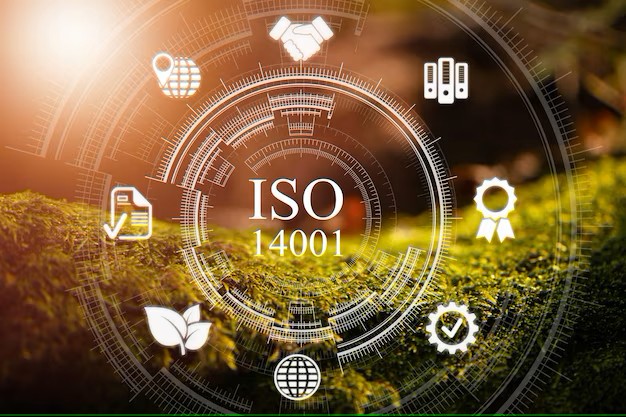Why the ISO 14001 Lead Auditor Course Matters for Government Agencies & Regulatory Bodies
In today’s world, environmental regulation isn’t just important—it’s urgent. Whether it’s the growing concern over climate change or the need for stricter sustainability measures, governments and regulatory bodies are at the forefront of enforcing policies that keep our planet in check. But what happens when you, as a government agency or regulator, need to ensure that organizations are genuinely adhering to environmental standards? How do you guarantee that businesses are upholding the promises they’ve made to the environment? Enter the ISO 14001 Lead Auditor Course, a powerful tool in your arsenal to ensure compliance and hold organizations accountable.
Let’s take a closer look at why this course is vital for those in regulatory positions and how it can significantly impact the efficiency and effectiveness of your regulatory processes.
So, What Exactly is ISO 14001?
If you’re in government or a regulatory body, you’ve probably come across ISO 14001 before. It’s an international standard for an Environmental Management System (EMS), which helps organizations identify, manage, and improve their environmental impact. Think of it as a blueprint for businesses to follow in order to operate in an environmentally responsible way.
Now, here’s the kicker—ISO 14001 is not just a set of theoretical guidelines. It’s a practical system that organizations can implement to achieve real, tangible environmental improvements. And the best part? It’s not just about reducing waste or lowering emissions, but it also covers legal compliance, risk management, and continual improvement. Sounds pretty comprehensive, right?
For government agencies and regulators, understanding ISO 14001 is crucial. But here’s the thing: it’s one thing to be aware of the standards; it’s another to be able to audit and assess compliance. That’s where the ISO 14001 Lead Auditor course comes in.
Why You Should Consider the ISO 14001 Lead Auditor Course
1. Strengthening Compliance Enforcement
As a government body or regulatory agency, you’re tasked with ensuring that organizations are adhering to environmental laws and regulations. The ISO 14001 Lead Auditor Course helps you gain the knowledge and skills to conduct thorough audits of businesses’ environmental management systems (EMS). When you understand the intricacies of ISO 14001, you can assess whether an organization is truly operating sustainably or just checking the boxes. This is crucial when enforcing regulations and ensuring accountability.
Without this expertise, it can be difficult to identify gaps in an organization’s EMS and pinpoint areas that need improvement. The Lead Auditor course equips you to spot these issues quickly and accurately, making your role as an enforcer much more effective.
2. Enhancing Your Audit Skills
Being an ISO 14001 Lead Auditor isn’t just about knowing the regulations—it’s about knowing how to audit them properly. A key skill you’ll gain from the course is the ability to conduct audits with precision. You’ll learn how to plan, conduct, report, and follow up on audits. More importantly, you’ll understand the subtle nuances involved in assessing environmental performance, like evaluating compliance with legal requirements or ensuring that an EMS delivers continuous improvements.
In essence, you’ll develop a skillset that allows you to look beyond surface-level practices and dive into the heart of an organization’s environmental impact. This is something no regulatory body should underestimate.
3. Promoting Accountability and Transparency
One of the most valuable aspects of the ISO 14001 Lead Auditor Course is its focus on transparency and accountability. By understanding how to audit an EMS, you’re in a better position to enforce transparency in the organizations you regulate. This is especially important for government agencies that rely on public trust. When organizations know that audits are being conducted by knowledgeable and skilled professionals, they’re more likely to comply with environmental standards.
Moreover, an effective auditing system ensures that companies don’t just adopt an EMS for the sake of it—they understand it, live by it, and improve upon it year after year.
The Structure of the ISO 14001 Lead Auditor Course: What You’ll Learn
It’s one thing to talk about the benefits of the course, but what does it actually entail? Let’s break it down:
1. Understanding ISO 14001: The Fundamentals You’ll start with a solid foundation, learning the core principles of ISO 14001. You’ll understand the framework behind the standard, why it matters, and how it drives continuous improvement in environmental performance. This section sets the stage for everything else.
2. Auditing Process: From Planning to Reporting Once you grasp the basics, the course shifts to the auditing process itself. You’ll learn how to plan an audit, gather evidence, and assess the effectiveness of an organization’s EMS. The course also covers how to document findings and report results in a way that is clear, actionable, and transparent.
3. Identifying Non-Conformities This is where you’ll sharpen your skills. You’ll learn how to identify non-conformities within an EMS. But it’s not just about pointing out issues—it’s about understanding how those issues impact environmental performance and suggesting practical improvements.
4. Ensuring Continuous Improvement A vital part of ISO 14001 is its emphasis on continuous improvement. You’ll learn how to assess whether organizations are making meaningful, sustained efforts to improve their environmental management practices over time. This is where your role as a regulator can have a massive impact—by ensuring that improvements aren’t just cosmetic, but genuinely lead to positive environmental outcomes.
What Does This Mean for Government Agencies?
When government agencies and regulatory bodies take part in the ISO 14001 Lead Auditor course, they do more than just acquire technical knowledge—they gain a set of skills that directly impacts their ability to hold businesses accountable. This isn’t just about checking boxes for compliance; it’s about making sure businesses take genuine action toward sustainability.
Imagine being able to walk into an audit and, without hesitation, identify the gaps in an organization’s environmental strategy. Picture yourself confidently enforcing regulations that ensure businesses don’t just talk the talk but walk the walk when it comes to sustainability. That’s the power of this course.
Conclusion: A Step Toward a Greener Future
The ISO 14001 Lead Auditor course is more than just an educational opportunity. For government agencies and regulatory bodies, it’s a vital tool that enables better enforcement, fosters accountability, and ensures that organizations are truly living up to their environmental promises.
In a time when sustainability is increasingly becoming a public and governmental priority, equipping yourself and your team with the expertise to audit environmental management systems can make all the difference. It ensures not only that organizations comply with regulations but that they improve their environmental performance and make lasting changes that benefit everyone.
Ultimately, the ISO 14001 Lead Auditor course is about ensuring a better, greener future. And when it comes to environmental regulation, isn’t that exactly what we’re all striving for?




